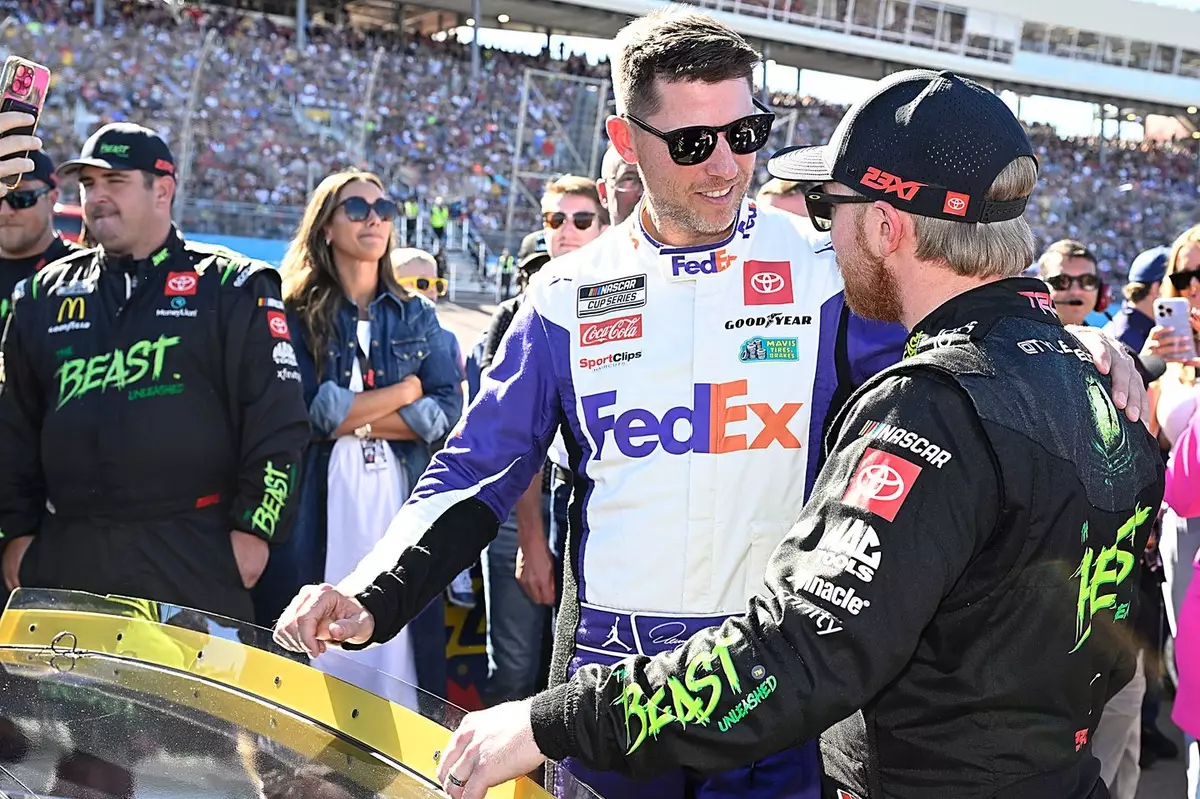In a significant legal development, 23XI Racing and Front Row Motorsports (FRM) have been granted a preliminary injunction that secures their charters for the upcoming 2025 racing season amid ongoing antitrust litigation against NASCAR and the France family. This ruling allows the teams to challenge specific sections of the 2025 Charter Agreement that have become the crux of their legal frustrations. Central to this agreement is a controversial release clause that bars teams from pursuing antitrust allegations post-signing, a provision that has sparked serious concern among racing organizations.
The court’s decision, handed down on a Wednesday, notably indicates that while the legal battle unfolds, the disputed clauses are unenforceable. This pause is particularly crucial for the teams involved, as it grants them the opportunity to proceed with plans for the future while the antitrust case plays out. The agility demonstrated by 23XI Racing and FRM following the initial denial for a preliminary injunction on November 8 speaks volumes about their determination; they pivoted their strategy to seek a more favorable ruling, demonstrating the importance of adaptability in legal battles.
To obtain the preliminary injunction, the teams needed to meet a stringent set of legal criteria. They had to prove they were likely to succeed based on the merits of their case, show that they would experience irreparable harm absent the injunction, establish that the balance of equities favored their position, and demonstrate that issuing the injunction served the public interest. Initially, the teams struggled to convince the court of the potential harm; however, the shifting dynamics and the evidence presented in subsequent motions changed the narrative.
The newly appointed Judge Kenneth D. Bell now presides over the case, a transition that has potentially altered the judicial outlook. His decision to grant the injunction underscores the evolution of the legal argument from mere speculation of harm, highlighted in the earlier motion rejection, to a recognition of present and immediate risks. The implications are profound, especially for drivers associated with 23XI and FRM who faced uncertainty regarding their contracts.
A particularly striking element of the ruling is the court’s acknowledgment of NASCAR’s monopolistic control over the premier stock car racing landscape in the United States. The ruling clearly states that “NASCAR possesses monopoly/monopsony power,” a finding that becomes pivotal to the antitrust claims raised by 23XI and FRM. The court explicitly ruled out alternatives, asserting that Formula 1 and IndyCar cannot substitute for the unique market that NASCAR occupies. With a veritable lock on the ability for teams to compete at the pinnacle of stock car racing, this monopoly assertion reinforces the underlying arguments of the teams in challenging NASCAR’s practices.
This week’s decision not only legitimizes the claims of unfair competition but also bolsters the prospects of 23XI Racing and FRM as they aim to navigate this complex legal landscape. They are poised to potentially solidify their current roster and expand operations—23XI has already expressed intentions to introduce a third car with driver Riley Herbst, while FRM seems to be eyeing an expansion of its own.
With this ruling, the immediate future appears more secure for the involved racing teams, yet the road ahead is still laden with challenges. NASCAR has the option to appeal the decision, an action that could create renewed uncertainty as the 2025 season draws nearer. For drivers and team personnel alike, the prospect of contracts being voided remains an anxiety-inducing specter. Tyler Reddick’s situation serves as a notable example, as an alteration in status could render his contract null and void should they enter the season as open teams.
The recent court ruling represents a pivotal moment for 23XI Racing and Front Row Motorsports. Not only does it afford them the charters crucial for their operations in the near term, but it also reinvigorates their legal fight against perceived injustices within NASCAR’s power structures. As they continue to strategize and expand, the underlying antitrust questions loom large, potentially redefining the dynamics of competitive racing in the United States.


Leave a Reply